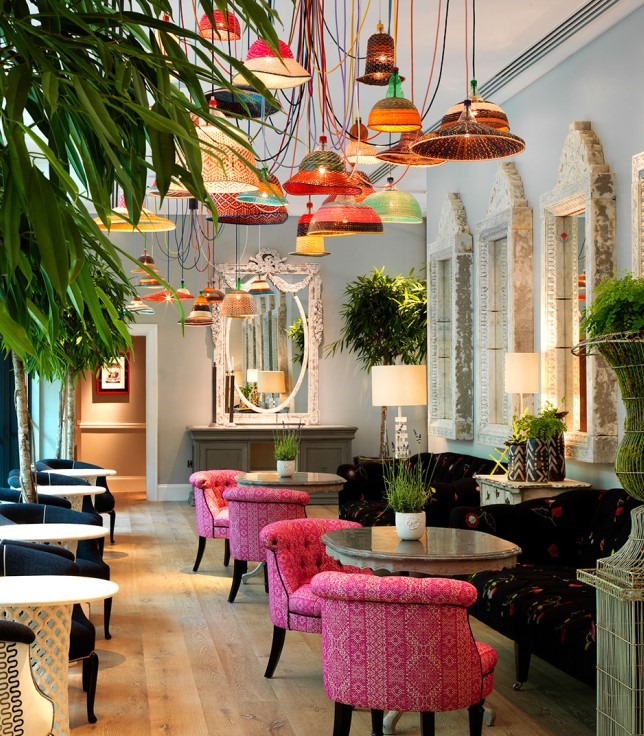Welcome to the culinary kaleidoscope of Ho Chi Minh City – where the streets are alive with the sizzle of woks, and every bite tells a tale of rich cultural fusions. In this 101 guide, we'll navigate through the gastronomic wonders that define this vibrant metropolis, from the fragrant dance of pho to the crispy symphony of banh mi. Ho Chi Minh City's food scene isn't just a menu; it's a journey through diverse backgrounds, a fusion of flavours echoing the city's dynamic history and multicultural fabric.
Join us as we explore the streets and stories that make your visit a delectable ode to Ho Chi Minh City's rich tapestry. Get ready to savour not just food but a feast of cultural diversity in every mouthful.
Let the culinary adventure begin.

District 1: Explore the cultural and historical hub
What to see and do
Before 1975, Ho Chi Minh City was known as Saigon, with District 1 serving as its centre. Saigon Centre, constructed by the French in the 18th century, boasts numerous iconic architectural works and expansive gardens with distinct French characteristics.Today, District 1 stands as the financial, administrative, and cultural hub of the city – an essential starting point for every visitor. This district is also home to multiple hotel options, including the centrally located Park Hyatt Saigon, one of the city’s top hotels, and the luxurious The Myst Dong Kho—a modernist tower adorned with windows and balconies in a unique pattern, surrounded by lush greenery.
The most immersive way to explore the heart of District 1 is on foot. Begin your journey with a visit to the Notre Dame Cathedral of Saigon, an architectural marvel blending Roman and Gothic influences. Adjacent to the cathedral stands the Saigon Central Post Office, a Western gem adorned with Eastern decorations, dating back to the late 19th century.
A brief stroll away lies the Independence Palace, steeped in historical significance as the former residence and workplace of the President of the Republic of Vietnam before the pivotal April 30, 1975, event. This three-storey palace, surrounded by lush grounds, invites exploration of its unique architecture and the discovery of remnants from bygone eras.

Continue your leisurely walk to the Saigon Zoo and Botanical Garden, a conservation park inaugurated in 1865 during the French colonial period. This oasis, the eighth oldest zoo globally, provides a serene escape within bustling Saigon. Housing over 1,300 animals from 125 species, including rare inhabitants like the star pheasant, yellow-cheeked gibbon, golden deer, and clouded leopard, the zoo is complemented by a rich botanical collection of over 2,500 trees and 900 preserved plant species. Nestled within the zoo's grounds, the Vietnam History Museum offers a brief yet insightful journey through Vietnam's historical periods of formation and development.
Next, embark on a captivating journey along the historic Dong Khoi Street, Saigon's architectural haven. Once one of the main arteries of Saigon during the French colonial era, Dong Khoi now stands as one of Vietnam's most expensive streets. Spanning 630 metres, it unveils a remarkable array of landmarks, including the Opera House, Notre Dame Cathedral, City Hall (now the People's Committee of Ho Chi Minh City), the Continental Hotel (established in 1880), the Majestic Hotel (built in 1925), and the iconic twin towers of Vincom Center Tower.

A noteworthy attraction near District 1 is the not-to-be-missed Tan Dinh Church, a pastel gem situated in District 3. Commencing construction in 1870, the church showcases a striking fusion of Roman architecture intertwined with Gothic and Renaissance elements. An intriguing aspect lies in its distinctive pink exterior and interior, a transformation that took place in 1957, earning it the affectionate moniker 'the pink church.'
Continue your walking tour to the bustling Ben Thanh Market, where you can savour a variety of specialty dishes with authentic Saigon flavours. Indulge in local delicacies such as broken rice, vermicelli with fish sauce, spring rolls, banh xeo, and Southern sweet soups. The market offers a vibrant culinary experience, allowing you to immerse yourself in the rich gastronomic culture of Saigon.
District 1 also boasts several MICHELIN-recommended restaurants. For a taste of pure Vietnamese cuisine, consider the restaurants listed in the MICHELIN Guide Hanoi and Ho Chi Minh City 2023, such as Hoa Túc on Alley 74 Hai Ba Trung or Cuc Gach Quan, a Bib Gourmand spot offering mostly traditional Vietnamese. In the mood for Vietnamese with a twist? Try the only MICHELIN-Starred eatery in Saigon – Ănăn Saigon. Alternatively, Bờm is also an excellent choice, offering intriguing culinary experiences.
P.S. Fancy a good cuppa joe? Don’t forget to drop by Nguyen Hue Walking Street, situated in the centre of District 1, for its renowned building filled with, you guessed it, cafés!

Chinatown: Indulge in the blend of Vietnamese and Chinese cultures
What to see and do
Chinatown (Chợ Lớn) adds a unique and vibrant hue to the tapestry of Ho Chi Minh City, primarily concentrated in District 5 and extending into parts of District 6 and District 11. With a history spanning over 300 years, this cultural enclave beautifully encapsulates the intricate interplay between Vietnamese and Chinese cultures. Adorned with Chinese architecture, including temples, guild halls, and distinctive culinary styles, Chinatown stands as a testament to the rich history and harmonious coexistence of these two cultures that is worth checking out.Chinese cultural practices emphasise worship significantly, evident in the abundance of temples and pagodas throughout Chinatown. The temples here boast ancient designs adorned with iconic dragon and phoenix motifs. Must-visit locations include Ba Thien Hau Pagoda, Ha Chuong Assembly Hall, On Lang Assembly Hall, and Ming Dynasty Ancestors Village Hall (Minh Huong Gia Thanh Hoi Quan) — all dating back more than a century.
What better way to explore Vietnam than with a stroll in a charming small alley? Wander through the narrow streets to discover dormitories exuding classic charm, providing a glimpse into the daily lives of Chinese-Vietnamese residents. Many houses, constructed between the late 19th century and the 1920s, proudly display a strong Chinese identity, making them picturesque settings for photography. Additionally, the aromatic air around oriental medicine pharmacies in Chinatown adds a delightful sensory experience.
A visit to Chinatown would only be complete with indulging in its renowned culinary offerings. Enjoy delectable dishes such as dumplings, pulled noodles, Chinese sweet soups, and even the bold flavours of stinky tofu. Along Ha Ton Quyen Street, delight in dumplings and wontons, while Chau Van Liem Street beckons with an array of Chinese sweet soups, including specialties like boiled chicken egg in red tea and black sesame dumplings.

District 2: Discover the new culinary haven
What to see and do
The Thao Dien area in District 2, recognised for its high concentration of expatriates, accommodates a diverse culinary scene. With an array of foreign restaurants and eateries, including French, Italian, Spanish, and Vietnamese fusion establishments, the area caters to the varied tastes of international residents and tourists.For a delectable dinner experience, consider exploring the Vietnamese delights at the 2023 MICHELIN-listed An’s Saigon, where authentic flavours take centre stage. Alternatively, indulge in classic French dining at 3G Trois Gourmands, where culinary expertise meets timeless elegance. If you're inclined towards a farm-to-table experience, Lửa stands out, sourcing only organic produce from local farms and blending European dishes with a subtle infusion of Japanese elements, accompanied by an excellent wine selection.
Xuan Thuy emerges as the most captivating street in Thao Dien, offering a distinctive charm when explored in the evening. Amidst the brightly coloured electric lights emanating from restaurants and lively bars, Xuan Thuy encapsulates a quieter and more profound night experience. The road, adorned with few cars and abundant trees, invites a serene ambiance.
Amidst the enchanting array of eateries and chic bars, consider a visit to a balut shop right in Xuan Thuy, renowned as Saigon's most famous. Don't be surprised if you find a queue forming…
Book the best hotels you can imagine — for every style and budget.



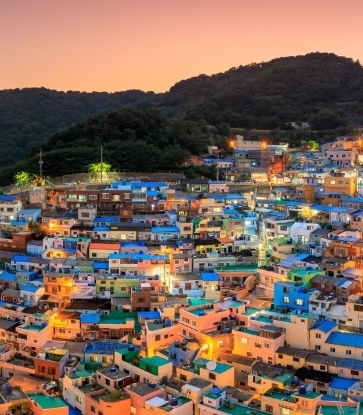

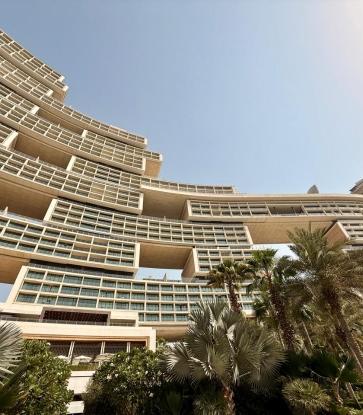
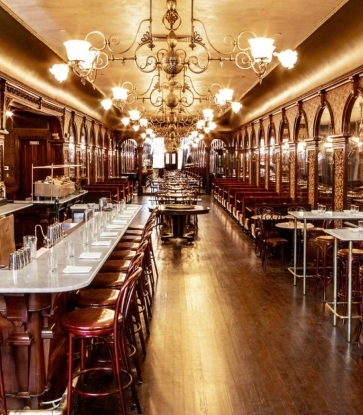
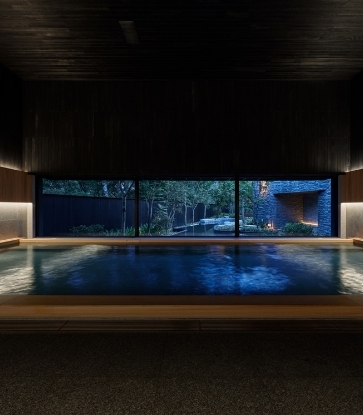
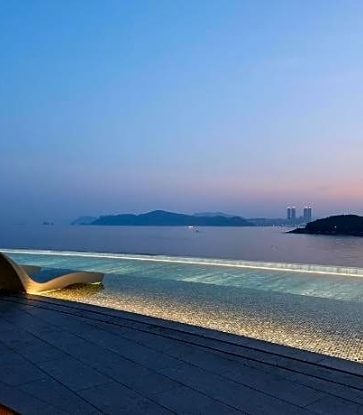

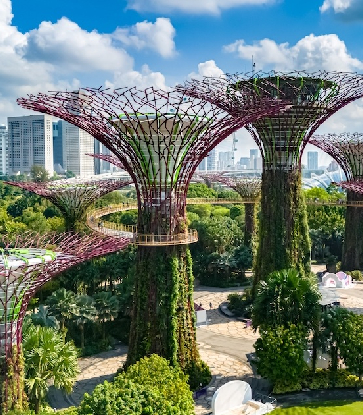
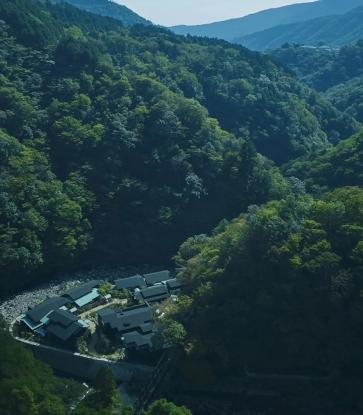


.jpg)
